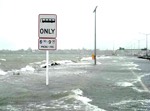 It’s time to return to the delusions harboured by New Zealand’s little coterie of climate cranks about the NZ temperature record. Readers may recall that — somehow — the men who lost a court case against NIWA and then folded the charitable trust they’d used to bring the case in order to avoid paying costs, managed to get their “reconstruction” of the NZ temperature record through peer review and into the scientific literature. To no-one’s surprise, they found that warming in NZ was only one third of that found by NIWA and a generation of NZ climatologists. To do that, they had to torture the data beyond endurance, as I showed at the time.
It’s time to return to the delusions harboured by New Zealand’s little coterie of climate cranks about the NZ temperature record. Readers may recall that — somehow — the men who lost a court case against NIWA and then folded the charitable trust they’d used to bring the case in order to avoid paying costs, managed to get their “reconstruction” of the NZ temperature record through peer review and into the scientific literature. To no-one’s surprise, they found that warming in NZ was only one third of that found by NIWA and a generation of NZ climatologists. To do that, they had to torture the data beyond endurance, as I showed at the time.
Equally unsurprising is that Richard Treadgold, prime mover of the whole fiasco, felt moved to respond in a number of typically prolix posts at his blog. His first, What Mullan actually says, purports to lay out the disputed points:
…I think these are the debating points he’s trying to make, lined up with the passages in which he makes them.
One small problem. This is not a debate. The facts are what the facts are, just as the temperature data is what it is. No amount of handwaving — or appeals to judicial authority — can change the facts of this matter. What can change is the interpretation placed on those facts, and that’s where Treadgold et al went wrong on day one.
In 2010 they decided — and explicitly told the world — that NZ’s climate scientists had been cooking the books. Everything they’ve done since has been a part of building a false narrative, a silly superstructure of misinterpretation and misdirection clumsily bolted together, designed to fool anyone sympathetic to their position. The new paper, by de Freitas, Dedekind & Brill 2014 (dFDB 2014) is just the latest effort to prop up that tottering edifice.
I have no intention of wasting time by playing along with Treadgold et al’s narrative. There are so many misdirections and misunderstandings on display in his sequence of posts that it would take a magnum opus to deal with them all. If I thought that by doing that I might change their minds — win them over to the world of climate rationality — then I would be happy to do it, but Treadgold et al are not what I would describe as rational actors. They admit no facts that are inconvenient to their world view, and show no sign of educability on climate science.
Continue reading “Solid Treadgold, easy action (NZ still warming fast)”

 Sea level rise of up to 40cm around New Zealand by the middle of this century is already locked in and will cause significant problems for coastal communities and infrastructure, according to a new report just released by Dr Jan Wright, the
Sea level rise of up to 40cm around New Zealand by the middle of this century is already locked in and will cause significant problems for coastal communities and infrastructure, according to a new report just released by Dr Jan Wright, the